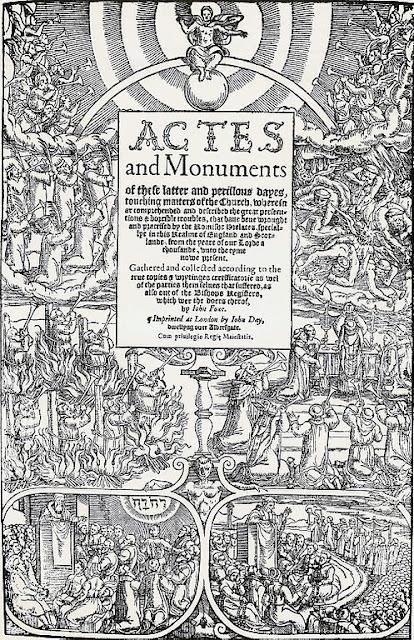Posts
Fox's Book of Martyrs: Dirick Carver, John Launder, Thomas Iveson, John Aleworth, James Abbes
- Get link
- Other Apps
Fox's Book of Martyrs: Rev. John Bland, Rev. John Frankesh, Nicholas Shetterden, Humphrey Middleton, Thacker, Cocker, Nicholas Hall, Christopher Waid, Joan Beach, John Harpol, Margery Polley
- Get link
- Other Apps
Fox's Book of Martyrs: Rev. John Bradford, and John Leaf
- Get link
- Other Apps
Fox's Book of Martyrs: Thomas Haukes, Thomas Watts, Thomas Osmond, William Bamford, and Nicholas Chamberlain.
- Get link
- Other Apps
Fox's Book of Martyrs: John Cardmaker, John Warne, John Simpson and John Ardeley
- Get link
- Other Apps
Fox's Book of Martyrs: Mr. William Flower.
- Get link
- Other Apps
Fox's Book of Martyrs: The Rev. Mr. George Marsh
- Get link
- Other Apps






